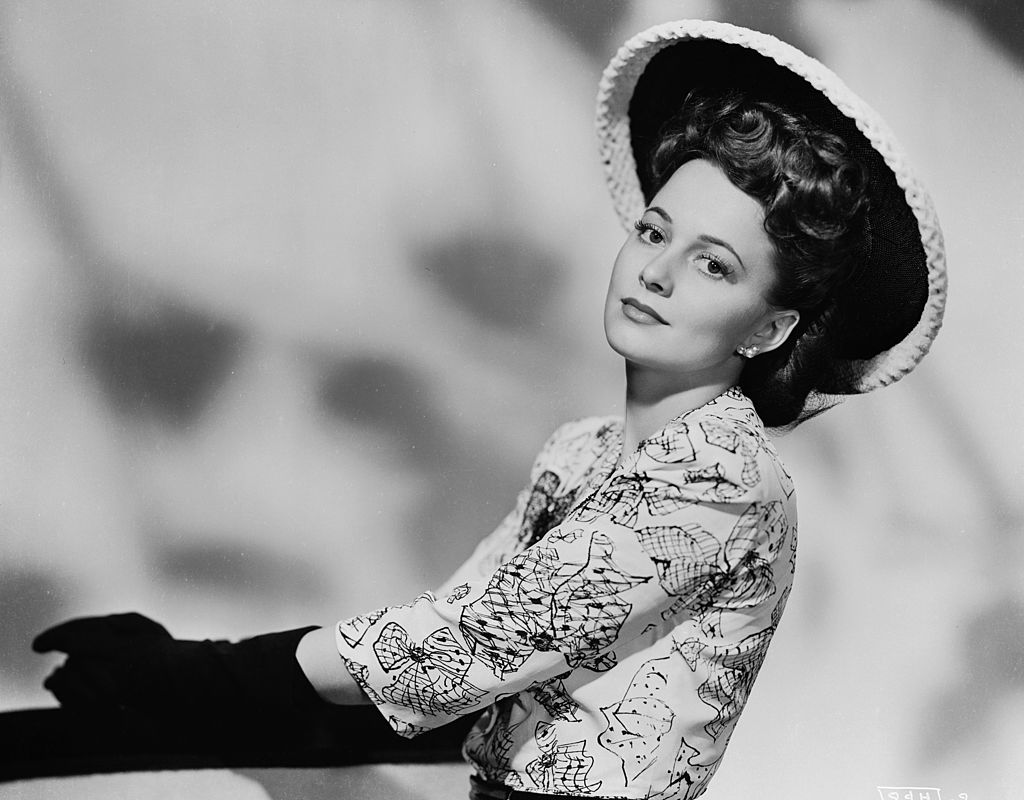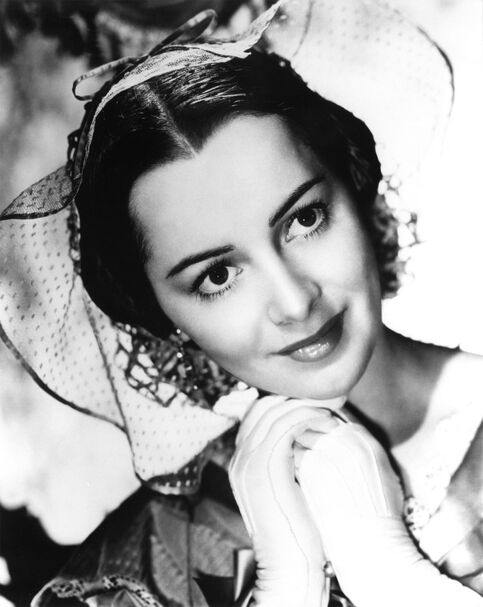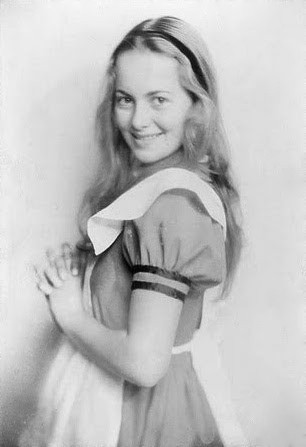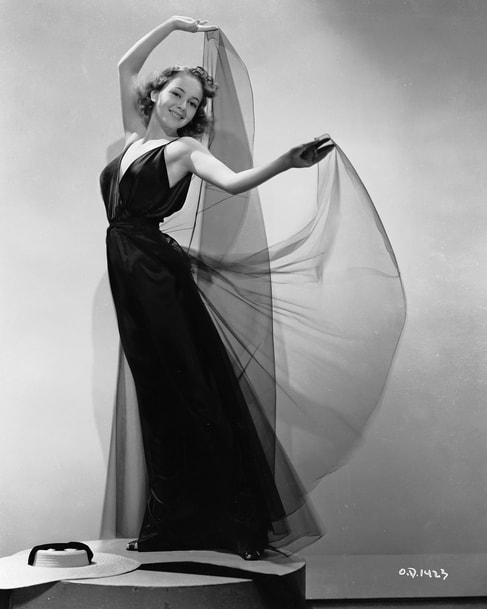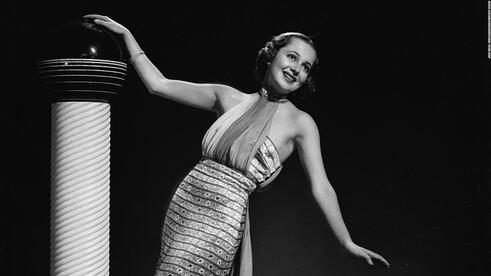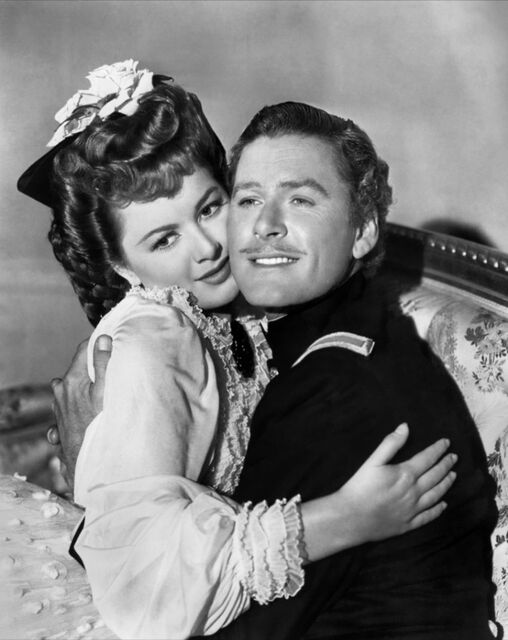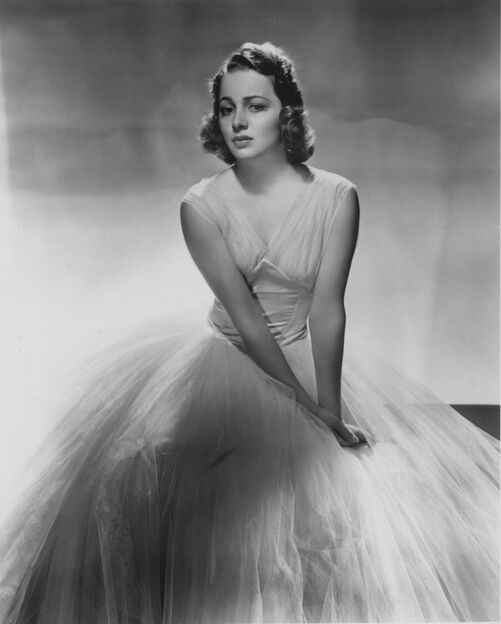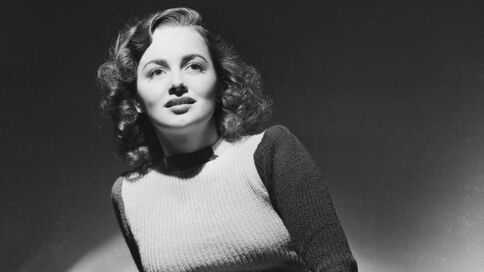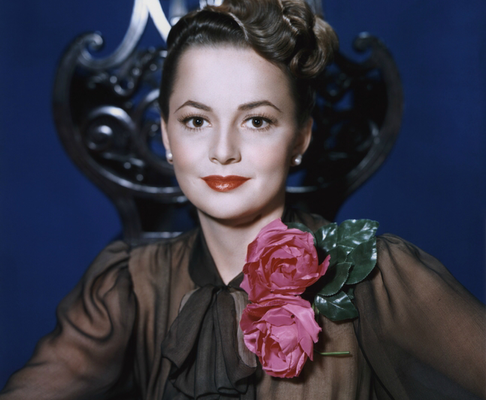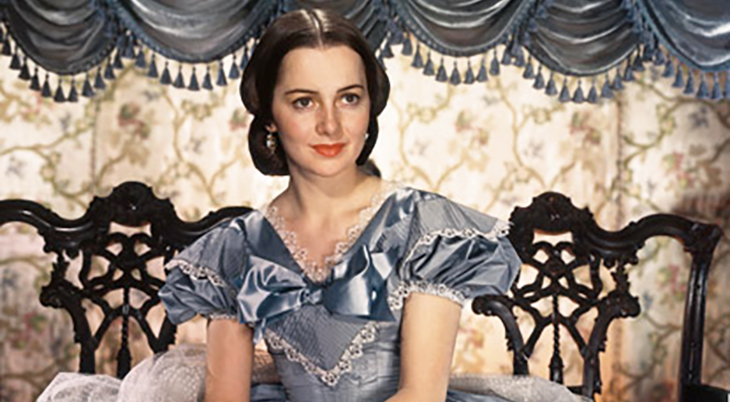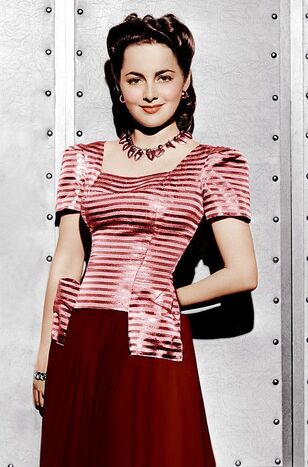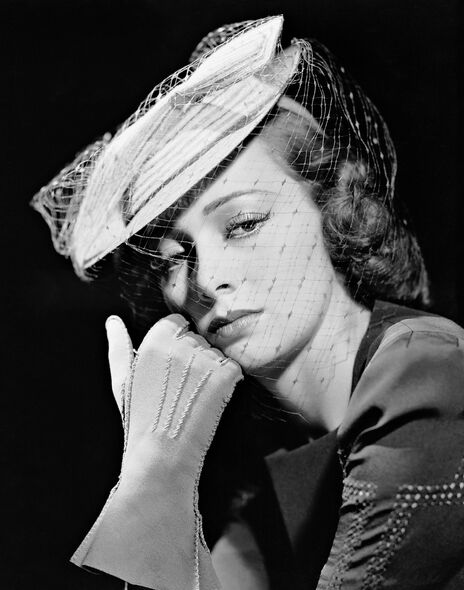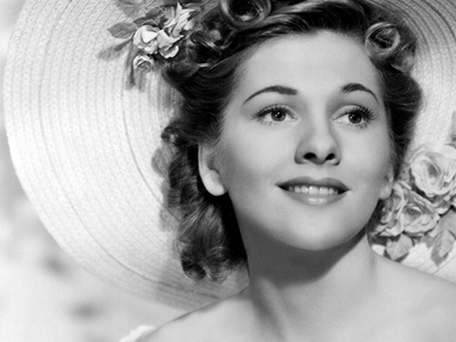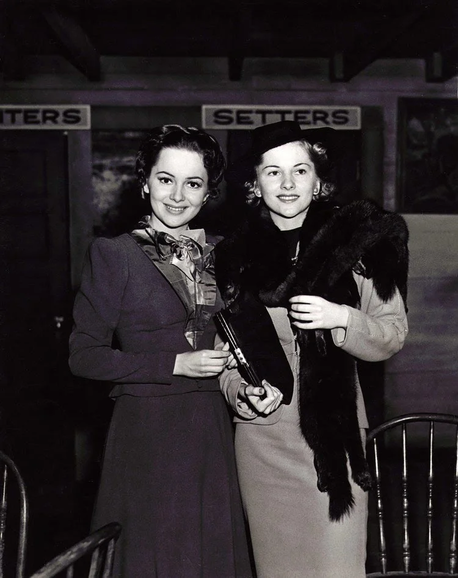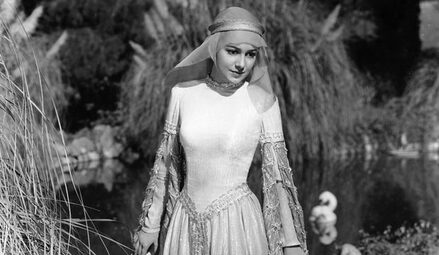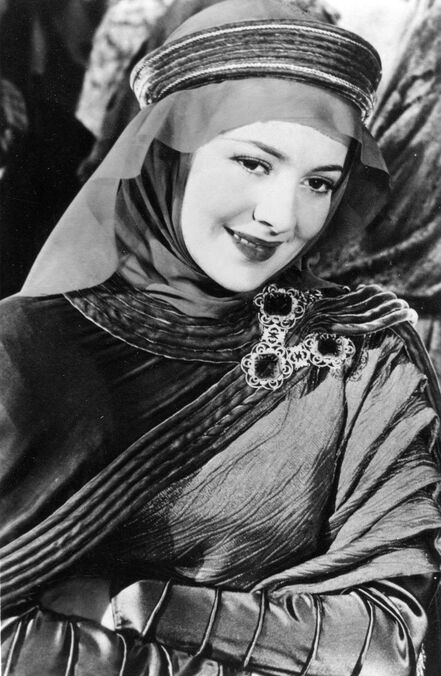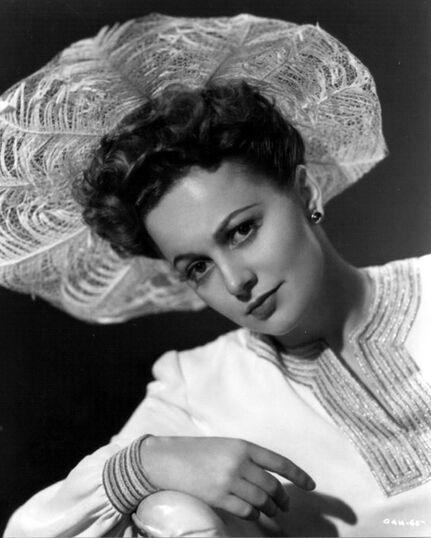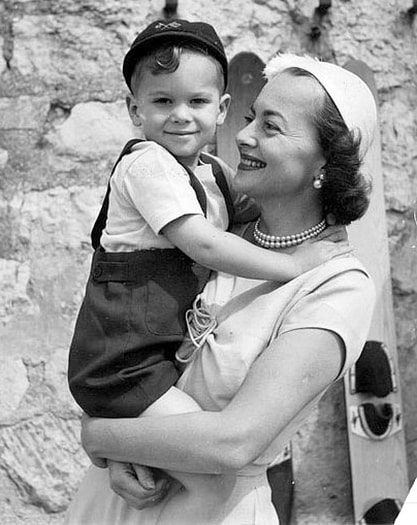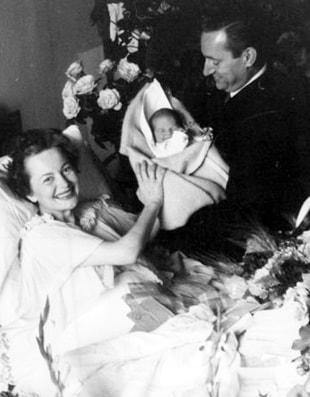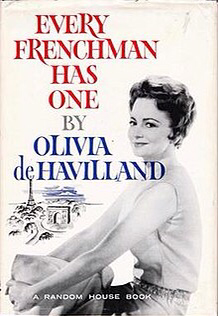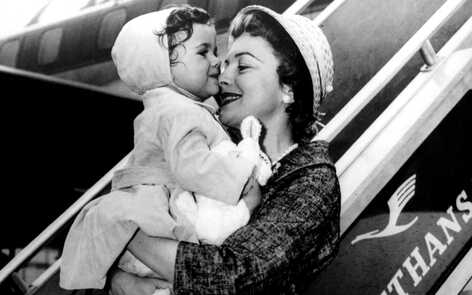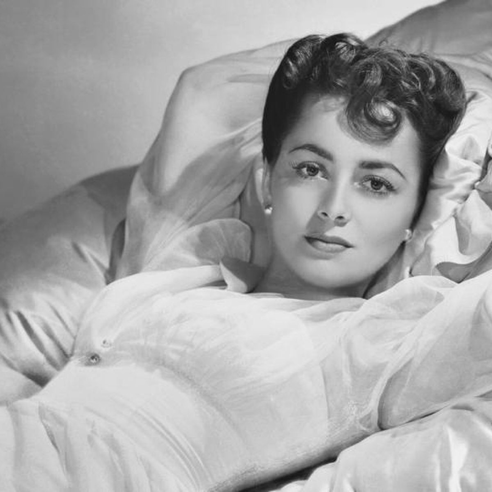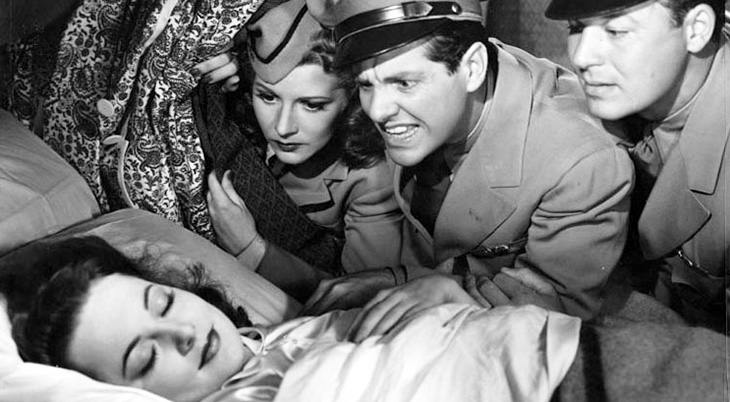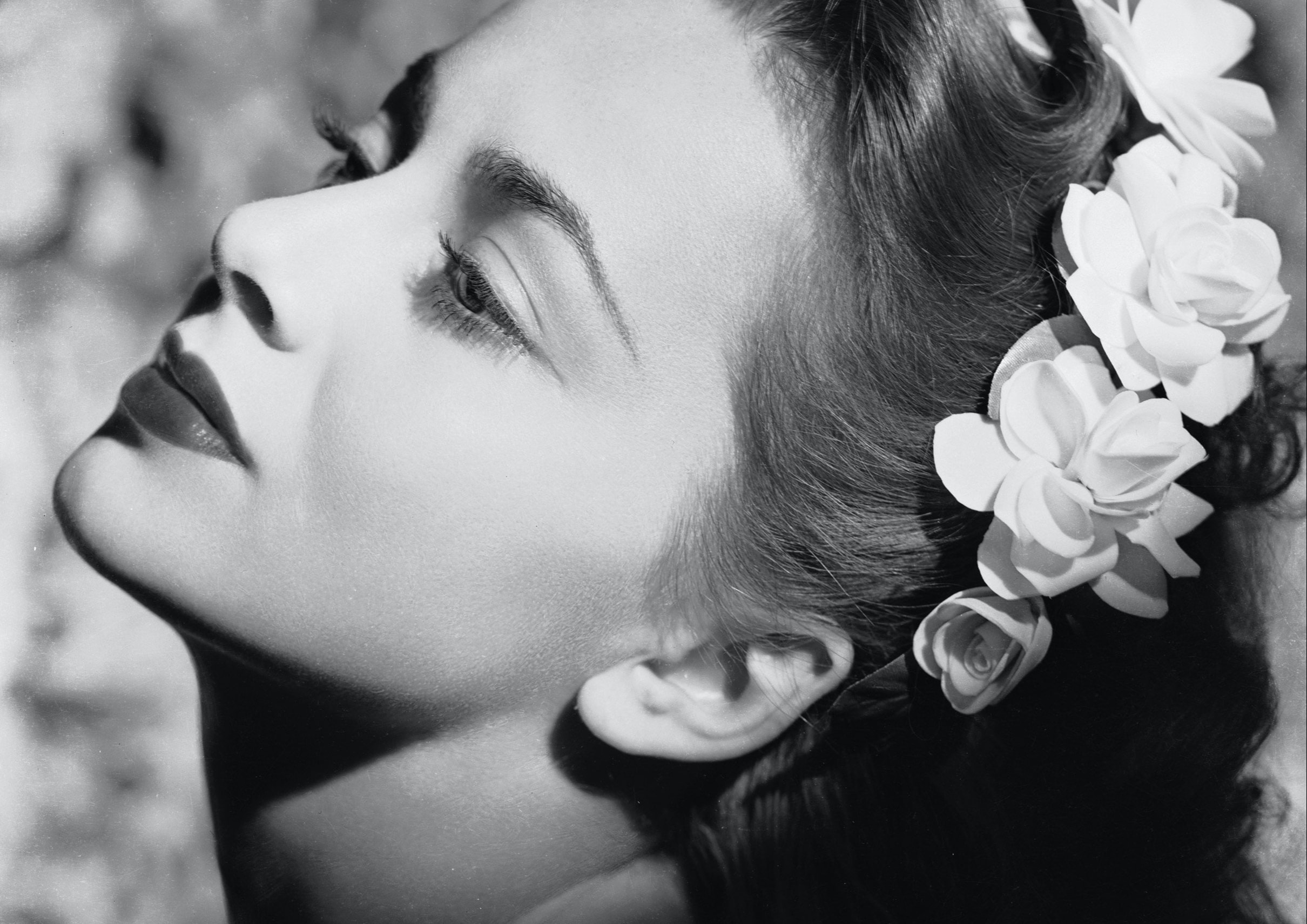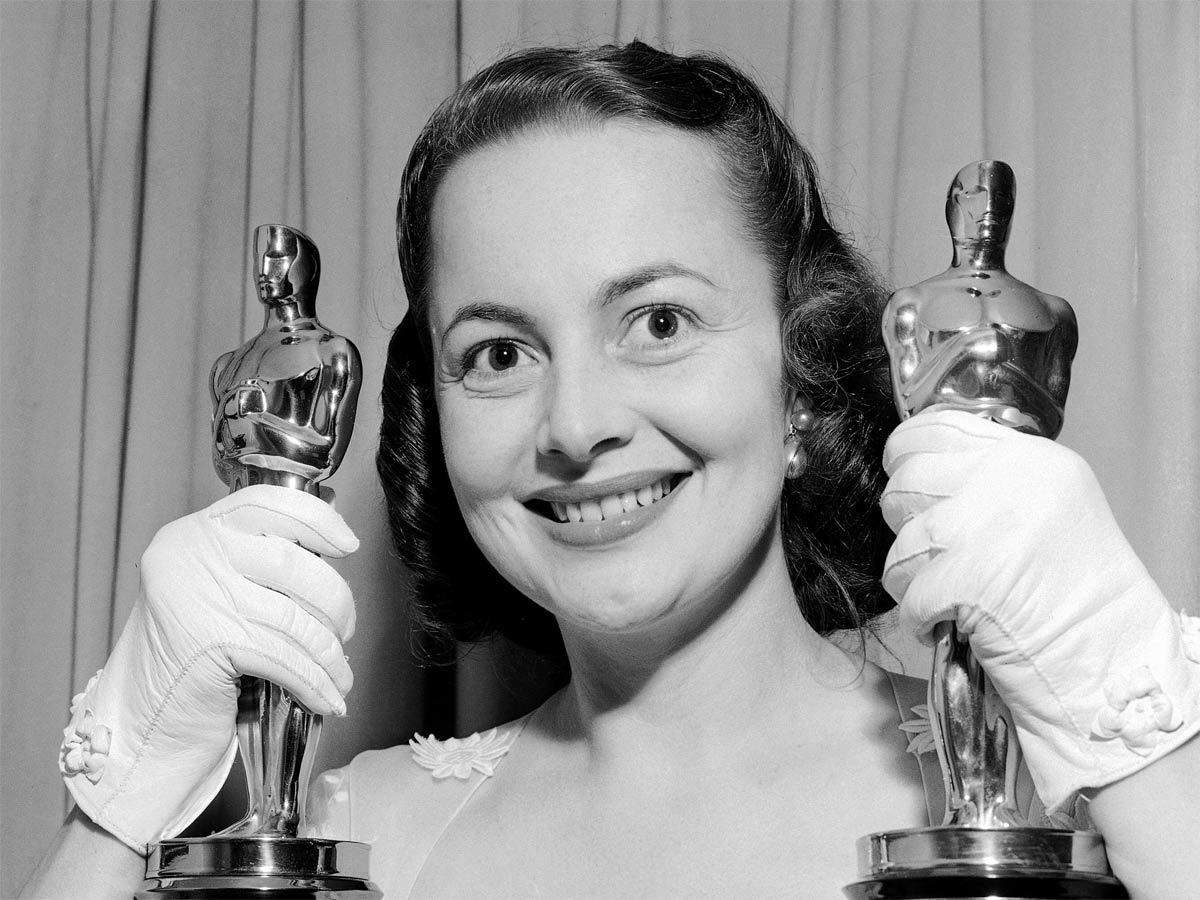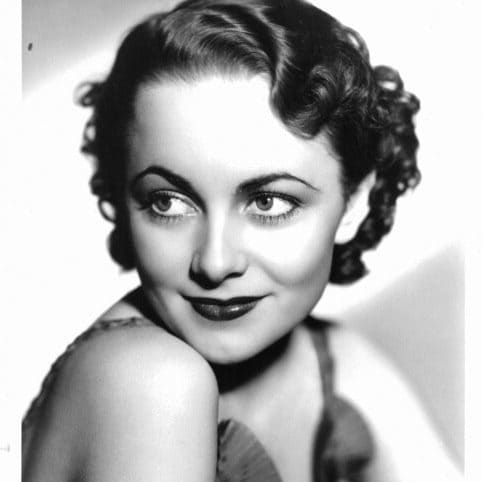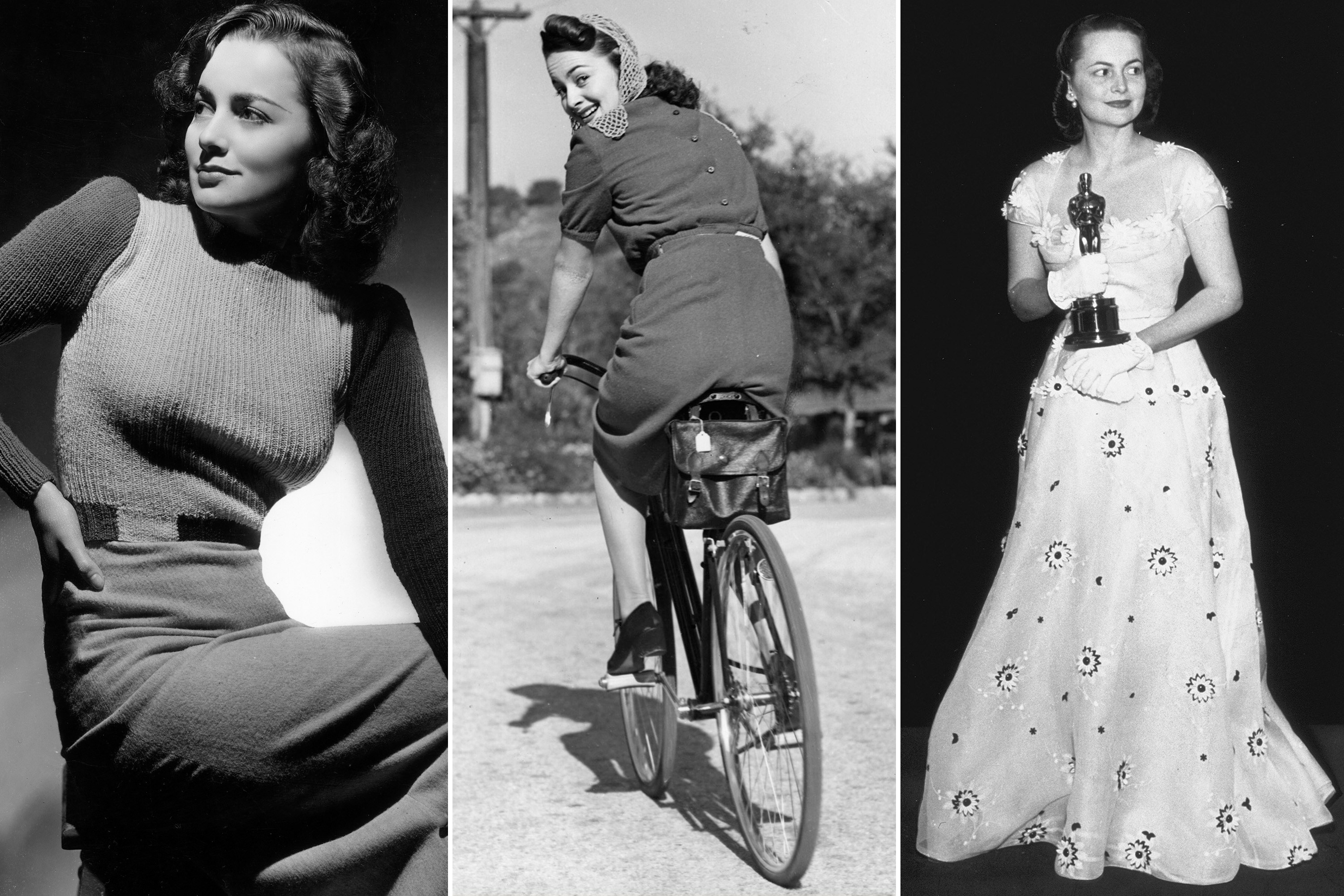Profile of Olivia de HavillandDame Olivia Mary de Havilland DBE (July 1, 1916 – July 26, 2020) was a British-American actress. The major works of her cinematic career spanned from 1935 to 1988. She appeared in 49 feature films and was one of the leading actresses of her time. She was the oldest living and earliest surviving Academy Award winner until her death in July 2020. Her younger sister was the actress Joan Fontaine. De Havilland first came to prominence with Errol Flynn as a screen couple in adventure films such as Captain Blood (1935) and The Adventures of Robin Hood (1938). One of her best-known roles is that of Melanie Hamilton in Gone with the Wind (1939), for which she received her first of five Oscar nominations. De Havilland departed from ingénue roles in the 1940s and later distinguished herself for performances in Hold Back the Dawn (1941), To Each His Own (1946), The Snake Pit (1948), and The Heiress (1949), receiving nominations for Best Actress for each and winning for To Each His Own and The Heiress. During her film career, de Havilland also collected two New York Film Critics Circle Awards, the National Board of Review Award for Best Actress, and the Venice Film Festival Volpi Cup. In addition to her film career, de Havilland continued her work in the theatre, appearing three times on Broadway, in Romeo and Juliet (1951), Candida (1952), and A Gift of Time (1962). She also worked in television, appearing in the successful miniseries Roots: The Next Generations (1979) and Anastasia: The Mystery of Anna (1986), for which she received a Primetime Emmy Award nomination and won the Golden Globe Award for Best Supporting Actress in a Television Movie or Series. De Havilland lived in Paris from the 1955 and received honours such as the National Medal of the Arts, the Légion d'honneur, and the appointment to Dame Commander of the Order of the British Empire. For her contributions to the motion picture industry, she received a star on the Hollywood Walk of Fame. She and her sister Joan Fontaine remain the only siblings to have won major acting Academy Awards. Biography of Olivia de HavillandOlivia Mary de Havilland was born in Tokyo, Japan on 1 July 1916. By birth, Olivia was member of De Havilland family which belonged to landed gentry that originated from mainland Normandy. Her mother, Lilian Fontaine (née Ruse; 1886–1975) is a stage actress, and her father, Walter de Havilland (1872–1968), served as an English professor at the Imperial University in Tokyo City then a patent attorney. Olivia's younger sister Joan (Joan de Beauvoir de Havilland)—later known as actress Joan Fontaine—was born on 22 October 1917. Both sisters became British subjects automatically by birthright. In February 1919, Lilian persuaded her husband to take the family back to England for a climate better suited to their ailing daughters. They sailed aboard the SS Siberia Maru to San Francisco, where the family stopped to treat Olivia's tonsillitis. After Joan developed pneumonia, Lilian decided to remain with her daughters in California, where they eventually settled in the village of Saratoga, 50 miles (80 km) south of San Francisco. Her father abandoned the family and returned to his Japanese housekeeper, who eventually became his second wife. Olivia was raised to appreciate the arts, beginning with ballet lessons at the age of four and piano lessons a year later. She did well in her studies in schoool, and enjoyed reading, writing poetry, and drawing. In April 1925, after her divorce was finalised, Lilian married George Milan Fontaine, a department store manager for O. A. Hale & Co. in San Jose. Fontaine was a good provider and respectable businessman, but his strict parenting style generated animosity and later rebellion in both of his new stepdaughters. In 1933, a teenage de Havilland made her debut in amateur theatre in Alice in Wonderland, a production of the Saratoga Community Players based on the novel by Lewis Carroll. The next year, she was discovered by Max Reinhardt who persuaded her to sign a five-year contract with Warner Bros. On November 12, 1934, Olivia de Havilland signed the contract with a starting salary of $200 a week, marking the beginning of a professional acting career which would span more than 50 years. De Havilland made her screen debut in Reinhardt's A Midsummer Night's Dream, which was filmed at Warner Brothers studios. The film generated little enthusiasm with audiences, but her performance has been praised by the critics. That same year, De Havilland was cast in Captain Blood along with a then little-known contract bit-part actor and former extra, Errol Flynn. This film gave de Havilland the opportunity to appear in her first costumed historical romance and adventure epic, a genre to which she was well suited, given her beauty and elegance, and the on-screen chemistry between de Havilland and Flynn was evident from their first scenes together. Captain Blood was released on December 28, 1935, and was nominated for four Academy Awards, including Best Picture. The popular success of the film, as well as the critical response to the on-screen couple, led to seven additional collaborations between Olivia de Havilland and Errol Flynn. One of them, The Adventures of Robin Hood (1938), not only was an immediate critical and commercial success, earning an Academy Award nomination for Best Picture, but also went on to become one of the most popular adventure films of the Classical Hollywood era; and another Western adventure Santa Fe Trail directed by Michael Curtiz became one of the top-grossing films of 1940. And their last film together, Raoul Walsh's epic They Died with Their Boots On, went on to earn $2,550,000, becomimg Warner Bros' second-biggest money-maker of 1941. The year when she bid farewell to her on screen lover Errol Flynn, she became a naturalized citizen of the United States, 10 days before the United States entered World War II militarily, alongside the Allied Forces. In a letter to a colleague dated November 18, 1938, film producer David O. Selznick wrote, "I would give anything if we had Olivia de Havilland under contract to us so that we could cast her as Melanie."The film he was preparing to shoot was Gone with the Wind, and Jack L. Warner was unwilling to lend her out for the project, but was Olivia de Havilland persuaded him smartly. She was signed to the project a few weeks before the start of principal photography on January 26, 1939. Gone with the Wind had its world premiere in Atlanta, Georgia, on December 15, 1939, and it won 10 Academy Awards, including Best Picture, and de Havilland received her first nomination for Best Supporting Actress. Her work on Selznick's prestige picture, did not lead to the first-rate roles at Warner Bros. Olivia de Havilland she wished, however. "He would give me roles that really had no character or quality in them." as she put it. And she wanted out. But after fulfilling her seven-year Warner Bros. contract in 1943, she was informed that six months had been added to her contract for the times that she had been suspended. She decided to sue Warner Bros. and won the lawsuit. The decision was one of the most significant and far-reaching legal rulings in Hollywood, reducing the power of the studios and extending greater creative freedom to performers.California's resulting "seven-year rule", is still known today as the De Havilland Law. Her legal victory, which cost her $13,000 in legal fees, won de Havilland the respect and admiration of her peers, but boycotts from all Hollywood studios. As a consequence, de Havilland did not work at a film studio for nearly two years. Havilland earned the Academy Award for Best Actress for 1946 for her performance in To each his own—her first Oscar. Four years earlier, her sister Joan Fontaine earned her first Oscar for her performance in Suspicion(1941). And they remained the only sisters in Hollywood who have been awarded Oscar. And de Havilland got married, too. On August 26, 1946, she married Marcus Goodrich, a U.S. Navy veteran, journalist, and author of the novel Delilah (1941). On September 27, 1949, de Havilland gave birth to her first child, Benjamin. In October, the film The Heiress where she starred in was released. Based on the 1880 novel Washington Square by Henry James, the film is about a young naïve woman who falls in love with a young man, over the objections of her cruel and emotionally abusive father, who suspects the young man of being a fortune seeker. Directed by William Wyler, Olivia de Havillnd won the Academy Award for Best Actress—her second Oscar. After the birth of his son, de Havilland decided to take time off from making films to be with him. Her family moved to New York in 1950 where de Havilland dedicated herself to theatre and played the leading roles in classic plays like Romeo and Juliet of Shakespeare and Candida by George Bernard Shaw. The marriage did not work due to her husband Goodrich’ unstable temperament. In August 1952, Olivia de Havilland filed for divorce, which became final the following year, when she was ready to embark on her new life in Europe. In April 1953, at the invitation of the French government, Olivia de Havilland travelled to the Cannes Film Festival, where she met Pierre Galante, an executive editor for the French journal Paris Match. Following a long-distance courtship and the requisite nine-month residency requirement, de Havilland and Galante married on April 12, 1955, and settled together in a three-storey house near the Bois de Boulogne park in Paris' 16th Arrondissement. Her second child, Gisèle Galante, was born on July 18, 1956. For the next few years, Olivia de Havilland was busy raising her children, working in films on both continents as well as in theatre in The United States, and writing. In 1962, she published herfirst book, Every Frenchman Has One, a lighthearted account of her often amusing attempts to understand and adapt to French life, manners, and customs. The book sold out its first printing prior to the publication date and went on to become a bestseller. Of course the thing that staggers you when you first come to France is the fact that all the French speak French—even the children. Many Americans and Britishers who visit the country never quite adjust to this, and the idea persists that the natives speak the language just to show off or be difficult. That same year, she also separated from her second husband Galante, but they continued to live in the same house for another six years to raise their daughter together, and they remained close to each other for the rest of their life: Galante lived just across the street from her when he moved out, and during his final bout with lung cancer prior to his death in 1998, it was Olivia de Havilland who took care of him. It seems Melanie still continued living in her after almost 60 years of Gone with the Wind. Throughout the 1970s, de Havilland's film work was limited to smaller supporting roles and cameo appearances, as film roles became more difficult to find, a common problem shared by many Hollywood veterans from her era. She began working in television dramas, Olivia de Havilland’s performance in the television film Anastasia: The Mystery of Anna (1986), as Dowager Empress Maria, earned her a Golden Globe Award for Best Supporting Actress in a Series, Miniseries or Television Film. In 1988, de Havilland appeared in the HTV romantic television drama The Woman He Loved; it was her final screen performance. In retirement, de Havilland remained active in the film community. On November 17, 2008, at the age of 92, de Havilland received the National Medal of Arts, the highest honour conferred to an individual artist on behalf of the people of the United States. The medal was presented to her by President George W. Bush. On September 9, 2010, de Havilland was appointed a Chevalier (knight) of the Légion d'honneur, the highest decoration in France, awarded by President Nicolas Sarkozy, who told the actress, "You honour France for having chosen us." In June 2017, two weeks before her 101st birthday, de Havilland was appointed Dame Commander of the Order of the British Empire in the 2017 Birthday Honours for services to drama by Queen Elizabeth II. She is the oldest woman ever to receive the honour. De Havilland died of natural causes in her sleep at her home in Paris, France on July 26, 2020, at the age of 104. Further interestArticlesBooks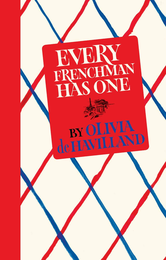 Every Frenchman Has One is a book written by American actress Olivia de Havilland. First published in 1962 by Random House, the memoir is a lighthearted account of the author's often amusing attempts to understand and adapt to French life, manners, and customs. In the book, de Havilland writes about French traffic, French maids, French salesladies, French holidays, French law, French doctors, and the French language—all with good humor and affection. After being out of print for decades, the Crown Publishing Group under its Crown Archetype imprint released a new printing on June 28, 2016, to coincide with the author's one-hundredth birthday. Vídeos
0 Comments
Leave a Reply. |
Categories
All
Archives
December 2023
|
